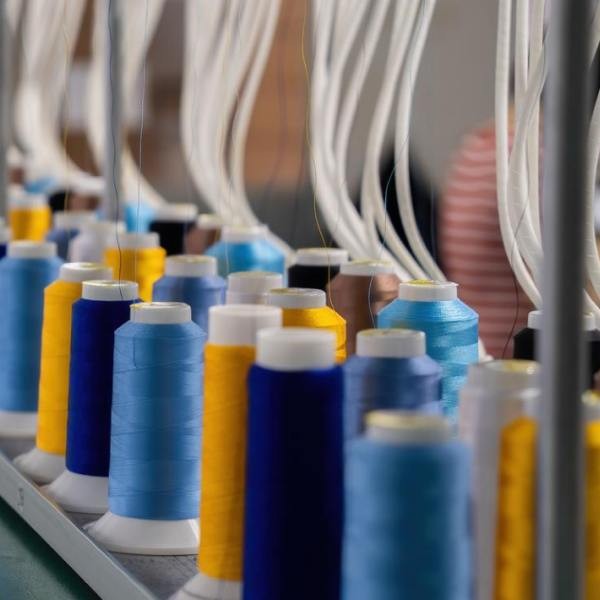Preliminary Injunctions in Brazilian SEP Litigation: Strategic Tools and Legal Safeguards
As technology evolves and connectivity standards expand—particularly around 4G and 5G implementations—the stakes in IP enforcement have grown, and preliminary injunctions (PIs) have become a frequent tactical instrument for global litigation.

Preliminary injunctions have a legitimate role in patent litigation—provided they are granted in accordance with legal safeguards.
By Ana Paula Affonso Brito, partner at Montaury Pimenta, Machado & Vieira de Mello
Concurrently, Brazilian courts have developed more nuanced approaches to SEP-related disputes, especially where technical complexity, essentiality assessments, and FRAND considerations intersect with urgent relief mechanisms. Recent cases show a diverse and maturing case law, underscoring the importance of early preparation, procedural diligence, and the use of all tools lawfully available to both rights holders and implementers.
Legal Framework and Risk of Injunctive Relief
Under Article 209 of the Brazilian IP Law (Law No. 9.279/96) and Article 300 of the Brazilian Code of Civil Procedure , a preliminary injunction may be granted to protect patent rights, provided that the requesting party demonstrates:
-a likelihood of success on the merits; and
-a risk of irreparable harm should relief be delayed.
While Brazilian courts are fully empowered to grant PIs, including ex parte, such relief must always be grounded in solid technical and legal evidence. What is at stake is not the legitimacy of injunctions per se, but the risk of imposing disruptive measures without a rigorous and balanced review of all relevant facts—including the validity of the patent, its essentiality to a standard, and whether the accused devices actually incorporate the claimed invention.
Strategic Considerations for SEP Stakeholders
For businesses that may become involved in SEP litigation—whether as patent holders or as companies accused of infringement—it is critical to understand and act upon the following legal and procedural options early in the process.
1. Technical Analysis: Essentiality and Infringement
One of the first and most effective steps is conducting a technical assessment of the patent in question. This evaluation can determine:
-Whether the patent is technically essential to the relevant standard, and
-Whether the devices at issue incorporate the claimed invention.
A robust technical position can support either an infringement claim or a non-infringement defense, and in some cases, justify the filing of a declaratory judgment lawsuit to clarify legal uncertainty or establish strategic leverage.
2. Validity Challenges
Parties may also initiate an invalidity action before Brazil’s Federal Courts to challenge the validity of the asserted patent. Although such lawsuits do not automatically suspend infringement proceedings, they often influence how courts evaluate the strength of the patent and whether a PI should be granted or maintained. Brazilian courts tend to exercise greater caution when faced with pending invalidity arguments supported by credible technical experts.
3. Monitoring and Procedural Readiness
Given that most SEP-related cases in Brazil are filed in the Rio de Janeiro State Court, continuous monitoring of local dockets is vital. Early detection of infringement actions allows for timely responses, including:
-Access requests to sealed or confidential court records;
-Intervention petitions or opposition briefs; and
-Coordination with parallel federal court actions, such as invalidity lawsuits.
Being procedurally prepared may also increase the likelihood of successfully seeking suspension or reconsideration of any PI granted on an ex parte basis.
The Case for Early Engagement
Whether acting as patent holder or alleged infringer, early engagement with the Brazilian judiciary often leads to more balanced and technically grounded outcomes. Proactive litigation strategies—including declaratory actions and timely technical submissions—help ensure that:
-Courts are fully informed before granting ex parte relief;
-Both sides are afforded the opportunity to submit evidence; and
-Preliminary decisions reflect the complexity of SEP disputes.
In recent Brazilian cases, early technical positioning and procedural preparedness have proven decisive. Courts have at times denied PI requests where urgency or essentiality was not sufficiently demonstrated, reinforcing the need for measured and thoroughly documented judicial requests.
Brazilian SEP Landscape: A Word of Caution
As Brazil’s role in global SEP enforcement expands, so does the use of litigation strategies aimed at publicizing early victories or PI rulings, even in the absence of final decisions. While lawful and often strategic, such approaches heighten the importance of maintaining procedural transparency, preserving the defendant’s right to be heard, and ensuring that interim measures are not used to distort competitive dynamics.
Notably, not all PIs request are granted, and courts are increasingly demanding a rigorous demonstration of the technical and legal requirements for injunctive relief—especially in disputes involving complex telecom standards.
Final Remarks
We believe that preliminary injunctions have a legitimate role in patent litigation—provided they are granted in accordance with legal safeguards and with full consideration of the technical merits.
ÚLTIMAS Noticias
Gabriela Miranda: convertir los 40 en un territorio de crecimiento compartido
Por fuera del ejercicio del Derecho, Gabriela Miranda (BDO Costa Rica) encontró en las redes sociales un espacio de expresión, reflexión y acompañamiento que hoy se ha transformado en una comunidad activa de mujeres que atraviesan una etapa vital clave.




